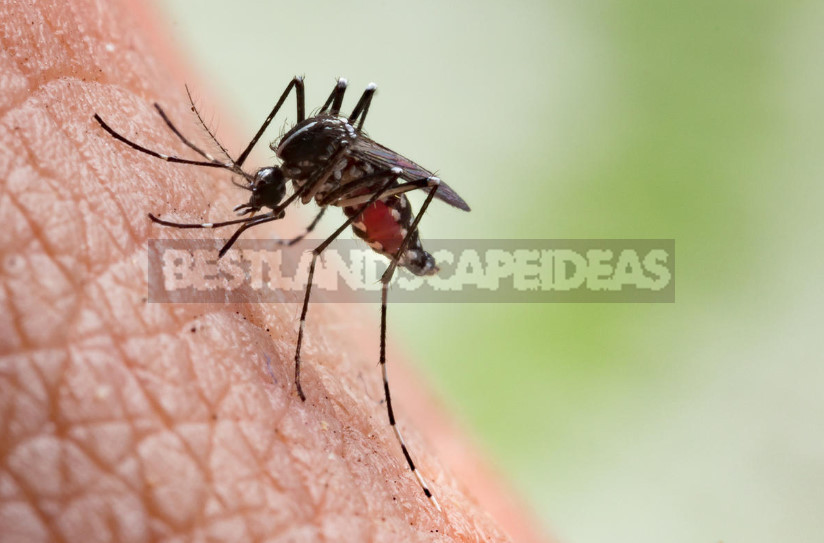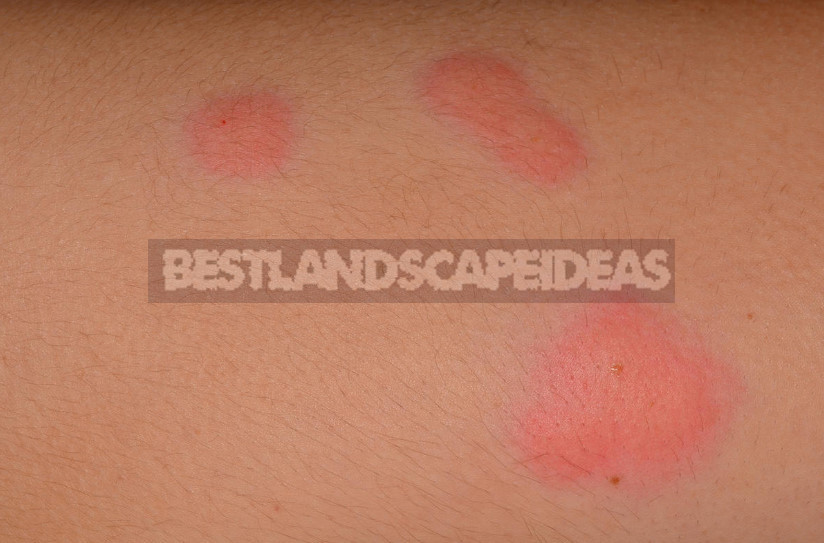
Summer is a wonderful time, which is associated not only with warm weather and an abundance of fruits and vegetables, but also with insects. Together with the sun in our lives inevitably appear mosquitoes, flies, hornets, wasps and other annoying creatures, significantly complicating life. And if in the city their presence is felt not so strongly, here at the dacha the person can experience all power of army of insects.
Bites are, of course, unpleasant, but contact with insects can also threaten an allergic reaction. And the danger is not only bees and wasps, but also other representatives of the insect world.
What insects can provoke a reaction
Almost any insect in contact with a person is able to provoke a negative reaction of the body. Most often, Allergy is provoked:
- Mosquitoes
Usually contact with this blood-sucking ends with the appearance on the body of a small itchy spot. However, if the human body is in a state of sensitization to the poison-coagulant, which is contained in the saliva of an annoying creature, can develop more serious reactions.

- Bees
Bee venom is perhaps one of the most famous allergens. Sting, which the insect leaves in the human body, allocates a variety of toxic substances, leading to unpleasant consequences. Often cope with them can be only with the help doctors.
- Fleas
It is believed that in the modern world people almost do not bite fleas, but this opinion is wrong. Animal parasites do not live on humans, but can drink their blood by mistake, releasing allergens into the human body.
- Bugs
Also, fortunately, quite rare in our days insects that can provoke an allergic reaction. Usually their bites are multiple, which is why the symptoms are expressed quite clearly.
- Wasps
Known as insects that can cause allergies with their bites on a par with a bee. However, as medical practice shows, contacts with wasps allergic reaction occurs much less frequently.
- Ants
Ant bites, especially multiple, can cause serious problems — from redness and itching to swelling.
Of course, the list could go on — the bites of other insects can also provoke an inadequate response of our protective systems — it all depends on the individual susceptibility of the body.
Symptoms of Allergy to insect bites
Most often, an allergic reaction to bites is manifested by local changes in the skin. They are not regarded as dangerous and, as noted by the doctor, it is possible to cope with them at home. Such manifestations include:

- pain at the bite site, which can vary significantly in severity, duration, description;
- redness of the skin, or hyperemia, which is also one of the manifestations of an allergic reaction;
- unexpressed tissue swelling around the bite site;
- in the bite area there is a strong itch, often forcing the victim to comb the problem area almost to the blood.
When to see a doctor
Patients whose body is too susceptible to insect venom may develop not a local, but a systemic reaction to the bite. In this case, you will need qualified medical care, as the overall reaction of the body is a threat to life and health.

Among the symptoms of systemic allergic reactions:
- complaints about breathing problems that can be expressed quite strongly — up to the complete loss of the ability to breathe;
- the appearance of urticaria on large areas of the body, including those in which there are no bites;
- extensive swelling — swells not only the bite area, but also the face, larynx, neck, which immediately catches the eye;
- the patient complains of a strong blood flow to the face, his redness, feeling of heat;
- the pulse becomes too frequent or even erratic, which negatively affects the cardiovascular system.
When these symptoms occur, medical advice is always recommended. Only a doctor can competently assist the patient, preventing the development of angioedema or anaphylactic shock – two life-threatening conditions.
Allergy to insect bites in children
Almost all young children react equally to insect bites, and this reaction can greatly frighten any adult. Especially a lot of fear will have to endure parents, if the bite occurred not in the city, where it is easy to get to the hospital, and in the suburban area, from which to the nearest medical center may not be close.

It is important to remember that children react more strongly to insect bites. The explanation is very simple. The child’s body gets the same amount of poison as an adult. As a result, the concentration of the substance is much higher and, as a result, a stronger reaction develops. Children are the main risk group for the development of anaphylactic shock. It is their bites that lead to bronchospasm, a sharp drop in blood pressure and even death in the event that timely medical care is not provided.
Rules of first aid to the patient
What to do if the insect bite could not be prevented, and a person literally develops a severe Allergy before his eyes? It is recommended to call an ambulance immediately. Before the arrival of doctors need:
- if there is a sting in the wound with maximum caution, remove it, trying not to damage the bag of poison located at its end;
- apply to the bite a bubble with ice or any other cold object;
- help the patient to lie down on a hard surface, making sure that the head and chest are in a slightly elevated state (this will help to avoid attacks of suffocation);
- make sure that the victim does not interfere with breathing tight clothes (loosen the tie knot, if any, unbutton the shirt collar);
- you can give a tablet of antihistamine, if it is at hand; if the first aid kit has injectable Allergy, you can make the victim from the insect bite injection.
- if there are signs of swelling of the face and neck, giving pills or water to the victim is strictly prohibited (if the swelling of the mucous membranes to give liquid or food, it can only increase the symptoms of suffocation);
- it is necessary to open all the Windows in the room or turn on the air conditioner to give access to fresh air.

If an injection of antihistamine has been given to the victim, medical personnel should be informed upon arrival of the ambulance. It is also recommended to explain to the doctor the circumstances of the bite, to name the type of insect, if it is known.
Insect bites only seem to be a common everyday problem of a person keen on gardening. If someone in the family is prone to allergic reactions, it is necessary to know firmly how to act in the development of allergies to insect bites, to be able to competently and timely provide first aid. Remember that sometimes someone’s life can depend on it.




Leave a Reply